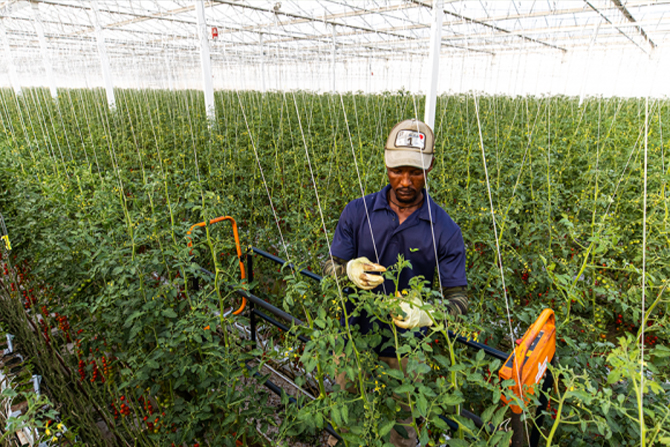
The Middle East is known for its rich agricultural heritage and the production of high-quality farm fresh produce. With its favorable climate, advanced farming techniques, and skilled growers, the region has become a significant player in the global food market. In this blog post, we will explore the challenges and opportunities involved in navigating the export of farm fresh produce in the Middle East and discuss how farmers, exporters, and stakeholders are overcoming these hurdles for successful global trade.
Quality Assurance and Food Safety: When it comes to exporting farm fresh produce, ensuring the highest standards of quality and food safety is paramount. Consumers around the world expect produce that is free from contaminants, meets international standards, and is delivered in optimal condition. Middle Eastern exporters have recognized this demand and have implemented stringent quality control measures, adhering to international certifications and standards to guarantee the safety and freshness of their products.
Compliance with Export Regulations: Exporting farm fresh produce requires compliance with a range of regulatory requirements specific to each target market. Exporters must navigate various protocols, certifications, and phytosanitary regulations imposed by importing countries. These regulations can involve documentation, inspections, and adherence to specific guidelines regarding packaging, labeling, and handling. Middle Eastern exporters are investing in the necessary resources and expertise to ensure compliance with these regulations, enabling them to access global markets smoothly.
Cold Chain Management: Maintaining the freshness and quality of perishable farm fresh produce throughout the export journey is a critical factor in successful trade. The Middle East’s geographical location, with its warm climate, presents challenges in preserving the produce’s freshness during transportation. To overcome this, exporters have invested in state-of-the-art cold chain infrastructure and logistics solutions. From pre-cooling facilities at farms to refrigerated trucks, warehouses, and shipping containers, maintaining the integrity of the cold chain is essential for preserving the freshness and nutritional value of the produce.
Market Knowledge and Consumer Preferences: To thrive in the global export market, it is crucial to understand the specific preferences and requirements of target consumers. Middle Eastern exporters are investing in market research and consumer insights to tailor their offerings accordingly. This includes identifying emerging trends, understanding packaging preferences, and catering to dietary preferences and cultural nuances of different regions. By adapting their products to meet the demands of international consumers, Middle Eastern exporters are gaining a competitive edge in the global marketplace.
Building Strong Relationships and Networks: Establishing strong relationships and networks is key to successful export endeavors. Middle Eastern exporters are actively participating in trade fairs, exhibitions, and industry events to connect with potential buyers, distributors, and partners. By fostering these relationships, they gain valuable market insights, build trust, and create strategic alliances that facilitate trade and open doors to new markets. Collaborations between exporters, industry associations, and government bodies also play a vital role in promoting Middle Eastern farm fresh produce globally.
Sustainable Practices and Traceability: Global consumers are increasingly concerned about the environmental impact and sustainability of the products they consume. Middle Eastern exporters are responding to this trend by adopting sustainable farming practices and emphasizing traceability throughout the supply chain. From organic farming methods to eco-friendly packaging solutions, exporters are aligning their operations with international sustainability standards. This commitment not only enhances the marketability of their produce but also contributes to a more sustainable and environmentally conscious global food system.
Navigating the export of farm fresh produce in the Middle East presents its own set of challenges, but with dedication, innovation, and collaboration, the region’s farmers and exporters are successfully overcoming these hurdles. By prioritizing quality assurance, compliance with export regulations, cold chain management, market knowledge, relationship building, and sustainable practices, Middle Eastern exporters are carving a niche in the global marketplace.


